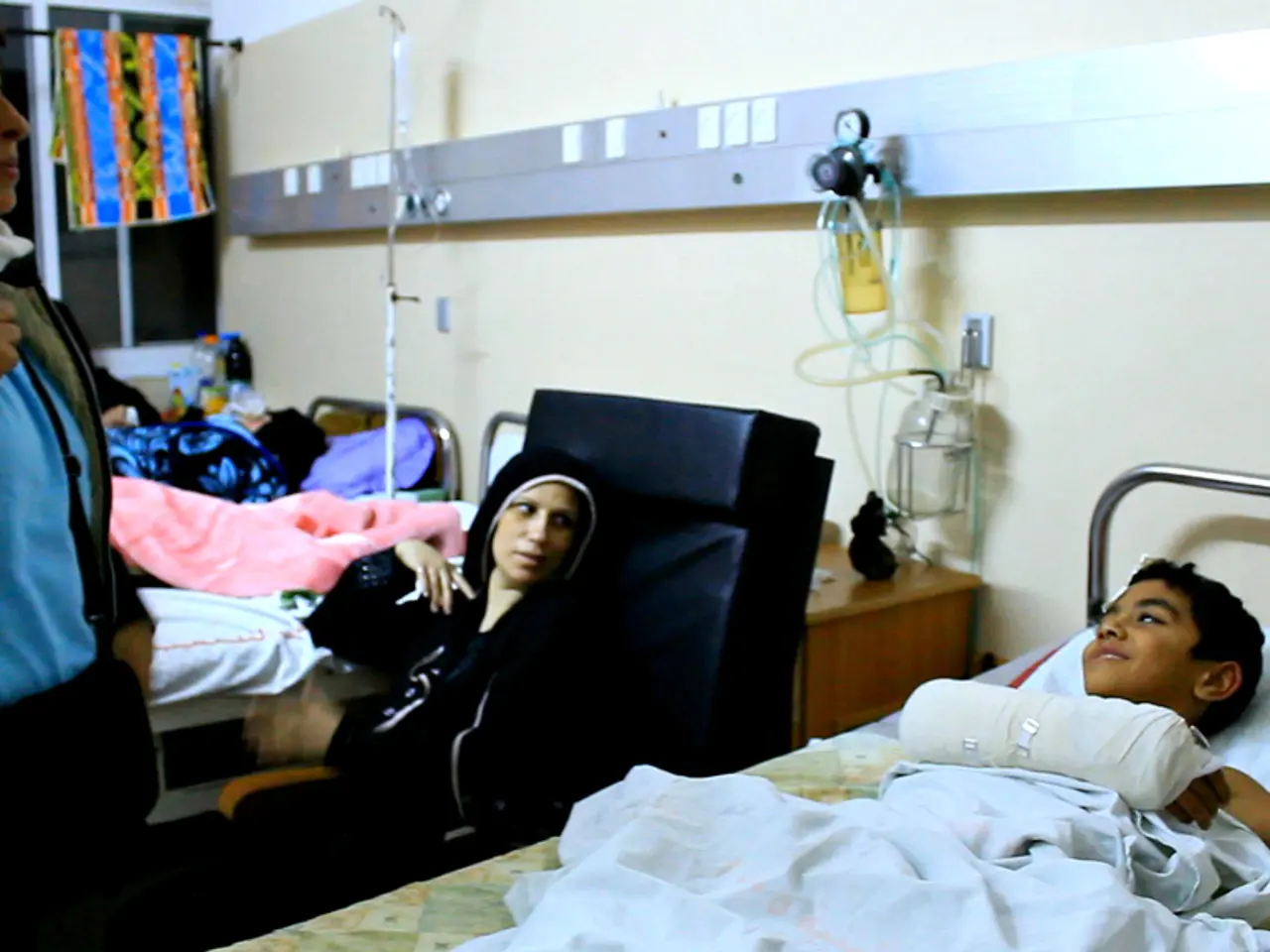Medical Practitioner Files Lawsuit Against Church: "I've Been Commanded to Inflict Torment upon a Woman"
In modern medicine, the only exception to terminating a pregnancy is when the woman's life is in acute danger, but this regulation is considered a fig leaf due to medical advancements. This exception, however, does not apply universally, as the legal status of abortion in Germany shows.
German law permits abortions in the first 12 weeks after mandatory counselling and in cases of medical necessity or fetal abnormality. However, Catholic hospitals legally enforce bans on abortions except to protect the mother's life or limb. This creates a legal contradiction affecting doctors’ ability to perform state-allowed abortions in Catholic employment settings.
A recent case in 2025 highlights this conflict. Dr. Joachim Volz, chief physician and gynecologist at the Lippstadt Clinic, is suing against a service instruction that categorically prohibits him from performing abortions. The instruction stems from a merger with a Catholic provider, which resulted in Catholic labor law applying, allowing deviation from state law when church principles are affected.
Dr. Volz's petition demands the decriminalization of any form of abortion due to Catholic employment law making it difficult for doctors to provide medical indication for abortions. The petition, signed by more than 200,000 people, calls attention to the challenges faced by doctors like Dr. Volz, who are legally obliged to end a pregnancy if the woman wishes to do so, but are restricted by Catholic employment rules.
The Catholic Church considers every termination of pregnancy as murder. Despite this, the Church can ban doctors from performing abortions, even if they are legal under German law. This raises questions about the freedom of medical professionals to make decisions based on their patients' best interests, as guided by state law.
The labor court in Hamm is hearing Dr. Volz's case today, as public awareness becomes increasingly important due to a lack of compromise and trust in his medical competence during a failed conciliation process. Dr. Volz suggests a new approach to the issue of abortion, advocating for supporting and strengthening women, rather than criminalizing doctors who help women for whom ending a pregnancy is essential.
The cases involving medically indicated abortions often involve severe malformations incompatible with life, such as Trisomy 13 or 18, and borderline cases like Trisomy 21, Down syndrome. The Catholic Church's absolute protection of life can lead to women being forced to carry pregnancies with such malformations to term, despite the children's limited viability and the need for intensive medical care.
This issue brings to light the complex relationship between state law and religious institutions, particularly in the context of healthcare. As the case of Dr. Joachim Volz demonstrates, this relationship can have significant implications for doctors, patients, and the broader medical community.
- The community policy regarding abortion in Germany permits the procedure in the first 12 weeks after mandatory counseling, in cases of medical necessity or fetal abnormality, but Catholic hospitals enforce bans on abortions except to protect the mother's life or limb.
- Science and health-and-wellness are at the heart of modern medicine, yet the conflict between state law and religious institutions, shown in the case of Dr. Joachim Volz, raises questions about the freedom of medical professionals to make decisions based on their patients' best interests.
- As the case of Dr. Volz highlights, the legal status of abortion can create challenges for doctors who are legally obliged to perform abortions yet are restricted by Catholic employment rules.
- In politics and policy-and-legislation, the divergence between state law and the Catholic Church's stance on abortion is a contentious issue, sparking debates on sexual-health, mental-health, and women's health, particularly in regard to men's health and therapies-and-treatments.
- Dr. Volz's petition for the decriminalization of any form of abortion due to Catholic employment law is gaining traction, with more than 200,000 signatures, calling attention to the problem of general-news, crime-and-justice, and war-and-conflicts that stem from this issue.
- The Catholic Church's unwavering stance on the sanctity of life, which includes the absolute protection of life, even in cases of severe malformations like Trisomy 13 or 18, can lead to women being forced to carry pregnancies with such malformations to term, despite the children's limited viability and the need for intensive medical care.
- Vocational training in the healthcare sector should prioritize the ethical guidelines and principles that promote patient welfare and well-being, ensuring that doctors are equipped to make informed decisions about their patients' health and well-being, regardless of employment setting or religious affiliation.




